Steve Baggott
Our older son, Alex, didn’t start at Seven Hills. It was clear to the teachers that he was pretty bright, but we also had him assessed and he presented with ADHD. That sent us on a journey for what would be the right sort of school for him. In fairness to my wife Sue, she did 95% of the legwork and research. Seven Hills was pretty clearly at the top of our list in terms of a place that we felt could give him — and also our younger son, Chris — the sort of individualized attention that we were looking for. Sue visited both campuses and left her time at Doherty with the feeling that it was this sort of warm embrace. Alex started at Doherty in kindergarten and Chris in preschool.
I would typically do drop-off in the morning, swinging through Doherty while driving from Blue Ash downtown to P&G. Alex had Priscilla Dunn for his kindergarten teacher. She was an imposing figure. As a parent, I’d be in parent-teacher conferences with her, sitting in those little chairs, and I would want to sit up straight because it was Mrs. Dunn! I remember her talking about the objectives for kindergarten, and, of course, there’s the academics, but she said, “What we really hope to do is by the time they move from kindergarten to first grade they can form a line, and they can button their coats.” She was talking about life skills, about being present to learn. All the academic stuff was important, but she took it as her charge to make sure the kids were prepared when they went on to greater academic pursuits that they knew how to behave and were good citizens.
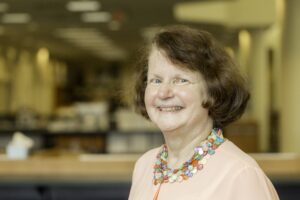
I’ll always remember former Doherty librarian Linda Wolfe, one of those iconic Doherty fixtures, instilling in the kids a love of reading, and matching each kid with the perfect book. Or former Doherty teacher Sarah Roberts, who would do a cartwheel in her classroom if the kids did something extraordinary. Cartwheels weren’t daily, but they also weren’t rare. It was just the most incredible thing to see a teacher literally throw herself into her teaching.
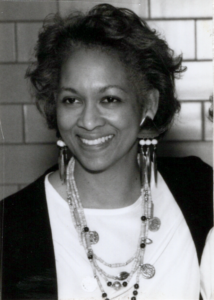
I was sort of intimidated by former Doherty teacher Regina Daily. She had this tough persona, even though I think she’s really a softie inside. In Unit III, Chris was struggling with math. She unlocked whatever the blockages were that he was having, spent time with him outside of class, and it was truly transformative in the space of months. Chris went on to become a biomedical engineer in college, and you have to have some pretty good math skills for that. I was so appreciative for the time that Regina Daily spent and the way she connected with Chris and the way she got him over the hump. It was — and is — a profound sense of gratitude.
In Upper School, both my kids, rather nerdish, were in the Latin Club, and they would compete in these tournaments called Certamen, on Saturday mornings. Their teacher, Brian Sebastian — “See-Bass” they called him — was so nerdy that he went around the end of nerdiness until it became cool again. He had a great love for Latin and was able to draw kids into Latin beyond just the requirement that they had to spend a semester learning it. He made it fun. He made it cool to be smart. He was a real role model for who Alex later became as a teacher himself, which is a little quirky, a little nerdy — able to relate to kids who are really smart and make them feel comfortable in their own skin.

We’ve had this iconic old guard of teachers at Seven Hills, but then you also have the newer teachers — Tricia Hoar in English, Brian Wabler in history, and many others — who, over the last decade and a half, even though they’re still mid-career, have carved for themselves a place in the pantheon of Seven Hills faculty. As Board members, we always worried, “Oh gosh, are we going to be able to replace a Bob Turansky?” The school has done a terrific job of bringing in people who have that same degree of passion, but they’re bringing their own selves to the classroom in ways that are different and unique but no less iconic for the students.
I tell parents who have young kids that the value of Seven Hills actually becomes so much clearer in the rear-view mirror. Our kids were so eminently prepared — academically in particular but also socially — for the transition from senior in Upper School to freshman in college. There’s an emotional and also a financial cost to arriving at college and not being prepared. The value proposition of Seven Hills just kept growing for our kids, even after they had graduated. As a result of that, Sue and I still feel incredibly connected to the school.
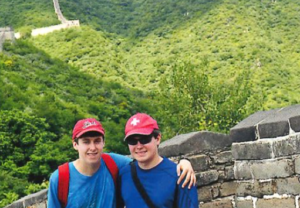
As I think about where I can invest my discretionary time, I want to help the institution go from strength to strength. As Head of Middle School Bill Waskowitz says, you don’t have to be sick to get better. And I think the school does continue to get better. One example is how the Middle School has really become one of the school’s crown jewels. Bill and his team have turned it into a truly signature program. He and his teachers have a lot of passion for this age group; they can deal with the challenges of a seventh grader without missing a beat. The Middle School has combined a robust curricular program with an overlay of social and emotional learning, which I think really sets the kids up well for the move to Upper School.
One of the things I’m personally most proud of is helping Head of School Chris Garten and Beth Schiff with the revamp of the early childhood facility at Lotspeich. I’m a numbers guy — I actually like doing spreadsheets and modeling — so I would sit with a lot of input from Director of Enrollment Management Janet Hill and model what needs to be true for the school to be vibrant long-term from an enrollment standpoint. The value proposition can be tougher in those younger years. It’s easier when you’re talking about a high school junior who’s getting ready to apply to college than for a 4-year-old. The approach with the early childhood center truly was, If we build it they will come — and they have come. We did that intervention, it worked, and bringing that magnificent facility and that program on board has been a real enabler for the enrollment vibrancy of the school, which if you don’t have that, you’ve got a boatload of problems.
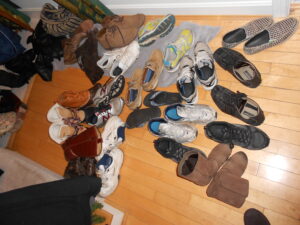
I have a picture of 20 pairs of shoes sitting in the entryway of our house from when the kids in the theater group would come over for pizza after practice or after one of the plays. They would all take their shoes off, so when the kids were little, the shoes were little, and when they were in Middle and Upper School, the shoes were bigger and you had the girls with big boots and all that. The kids would be downstairs, and this was before they were driving, so the parents would drop them off, and we’d offer wine and cheese and have the parents sitting around our kitchen. It was touching because these kids were creating what are lifelong friendships, and we were becoming dear friends with the parents, and it wouldn’t have happened were it not for Seven Hills. When you strip it right down, like many things in life, it’s about relationships. We would all go through stuff, and the camaraderie, the supportive ecosystem of the school was this incredible side benefit to what goes on in the classroom.
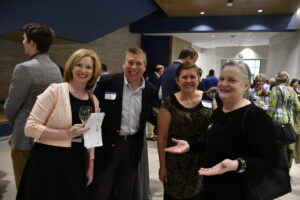
What I treasure now is if I’m back on campus and I bump into a teacher who I may not have seen for two years, they see me, give me a hug, and they say, “How are Alex and Chris doing?” Our kids are but two of the hundreds, if not thousands, of students they have worked with over the years. The fact that they remember and care that deeply about all the kids, I treasure that.
